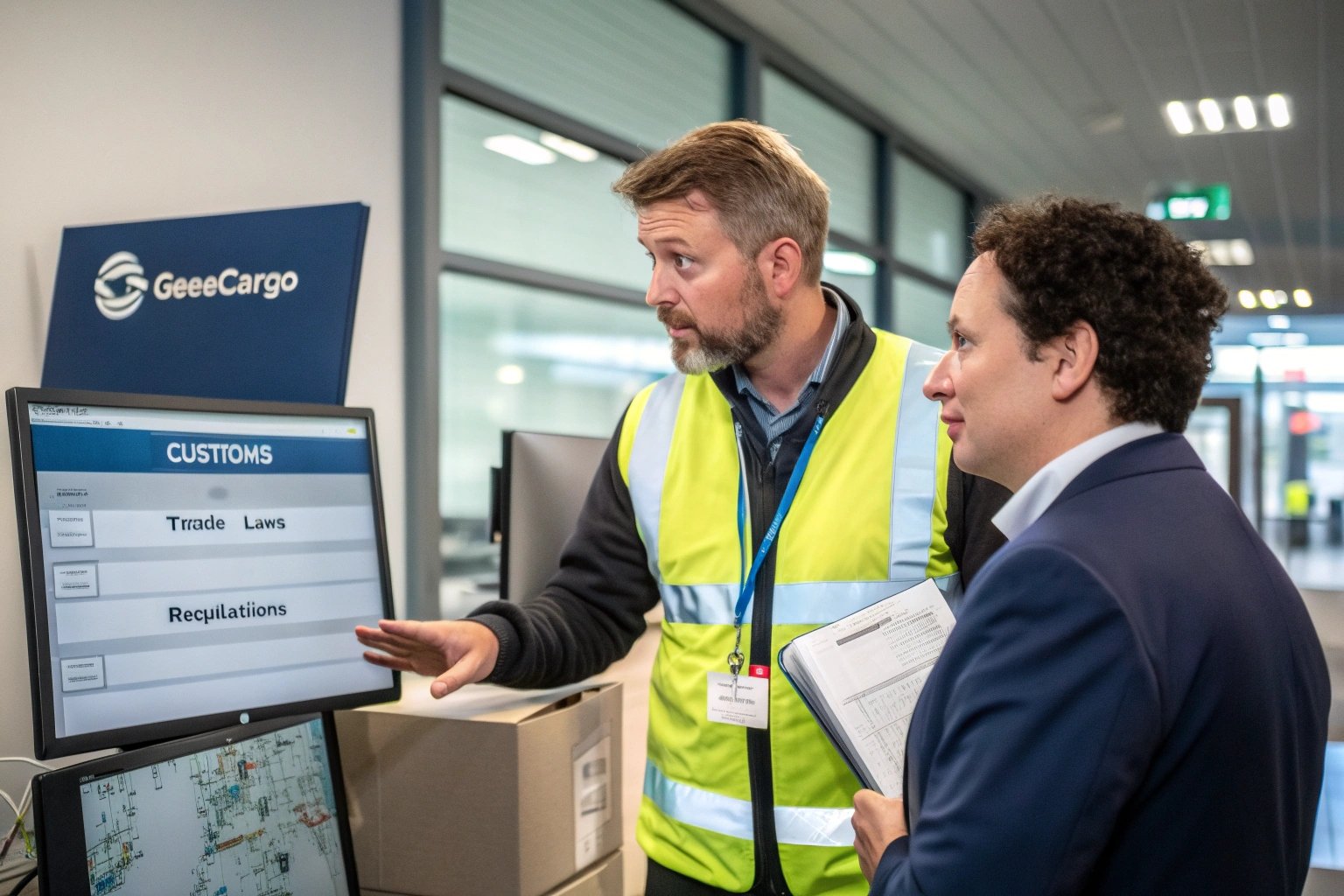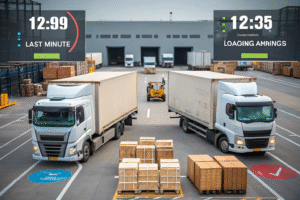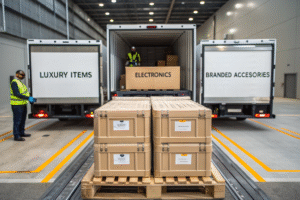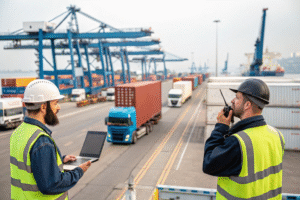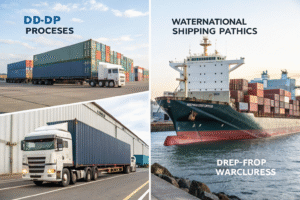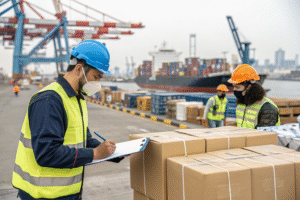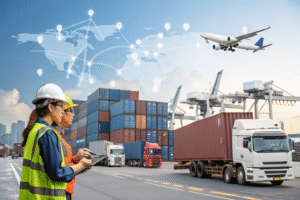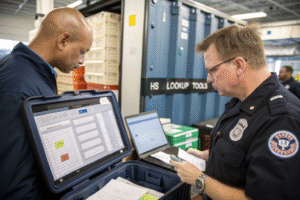Global shipping is no joke. Regulations, forms, inspections—one mistake could cost thousands. Many importers feel like they’re walking through a legal minefield.
Yes, experienced freight forwarders manage complex international regulations daily. They know how to clear customs, comply with trade laws, and avoid costly penalties, saving you time, stress, and money.
When I started GeeseCargo, I saw many new clients overwhelmed by compliance rules. That's why we built a system to keep things smooth. We don't just move boxes—we guide your goods through international red tape with precision.
How forwarders navigate customs and trade compliance
Ever had a shipment stuck in customs without warning? That’s usually a sign your logistics partner wasn’t ready for the regulatory hurdles.
Freight forwarders navigate customs and trade compliance by understanding destination rules, using licensed brokers, and proactively preparing all necessary documents for clearance.
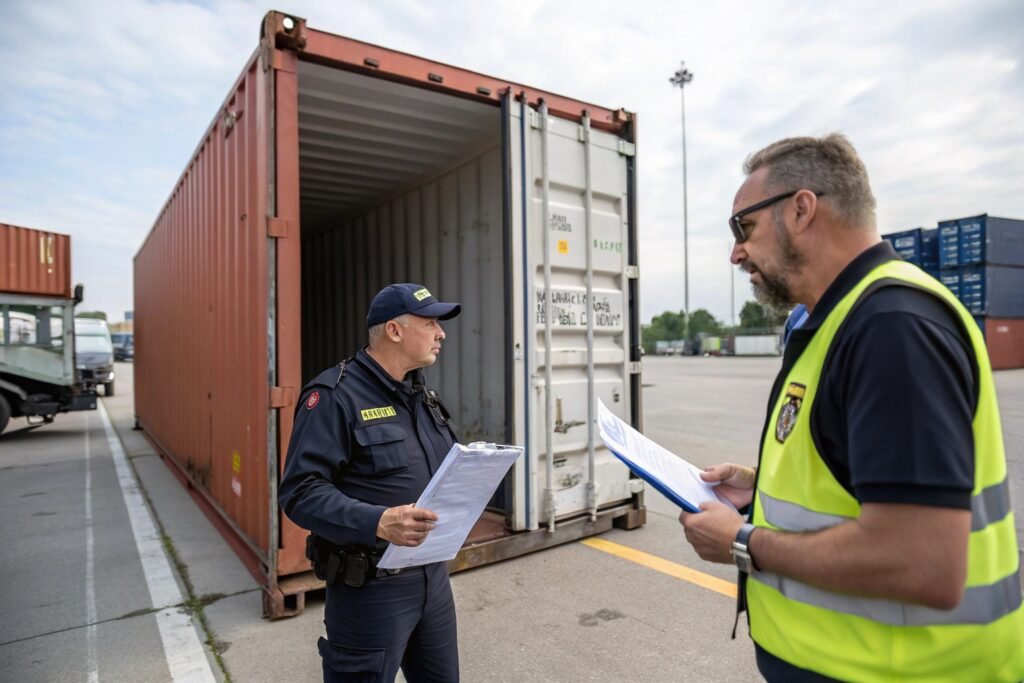
How do forwarders stay updated with evolving regulations?
Customs policies shift often—due to trade tensions, economic sanctions, or national security concerns. A reliable freight forwarder maintains access to legal advisors, government bulletins, and global compliance networks.
At GeeseCargo, we maintain contacts at major ports and customs offices across Asia, Europe, and North America. When regulations change, we adapt fast.
We also partner with certified customs brokers. These brokers ensure your documentation is airtight, your cargo classification is accurate, and your tax obligations are correctly estimated.
Here’s what that looks like in practice:
| Compliance Step | Who Handles It | Benefit for Importer |
|---|---|---|
| Tariff classification | Customs Broker + Forwarder | Prevents misclassification |
| Regulatory change alerts | GeeseCargo Legal Network | Timely compliance |
| Bond and entry filings | Licensed U.S. Broker | Avoids delays |
| Port-specific requirements | Local Agent + Our Ops | Smooth local clearance |
Can forwarders prevent customs delays?
Yes—if they’re proactive. We’ve seen forwarders who wait for customs to flag an issue. That’s reactive. We do it differently.
Before your shipment moves, we analyze the product, review import rules in the destination country, and confirm any licenses or restrictions in advance.
For example, one client was importing Bluetooth headphones. Many forwarders would miss that FCC certification is needed in the U.S. We flagged it early, helped them get certified, and ensured clearance without delay.
That kind of foresight is what sets serious freight partners apart.
Managing documentation for multi-country shipments
Are you shipping goods from China to Germany, then splitting them for sale in the U.K. and Spain? You’ll need to comply with at least three different sets of import/export laws.
Freight forwarders handle multi-country documentation by coordinating shipping papers, origin certificates, and customs entries according to each country’s rules.
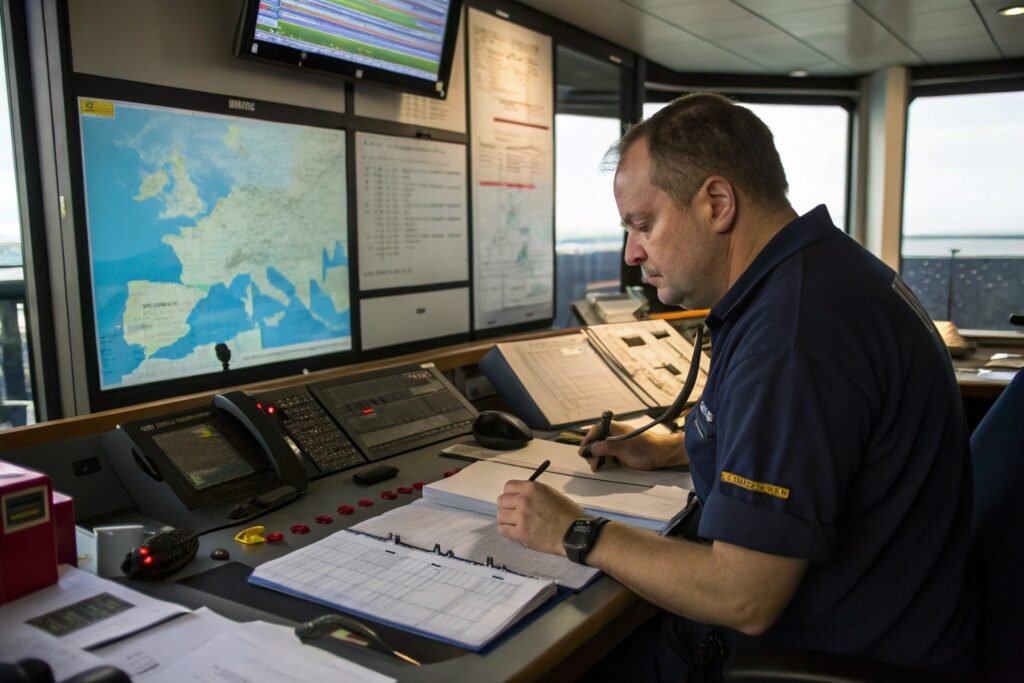
What documents do international shipments need?
It depends on the trade lanes. But most international shipments need:
- Commercial Invoice
- Packing List
- Bill of Lading or Air Waybill
- Certificate of Origin
- Import Permits (if required)
- Product Compliance Certificates (e.g., CE, FDA)
- Tax ID or EORI numbers
A good forwarder collects these upfront and matches them to each jurisdiction. For example, we make sure that EU-bound goods carry the proper CE documentation, while U.S.-bound items have correct HS codes and POAs on file.
Here’s how our documentation process works for multi-country shipments:
| Step | Description |
|---|---|
| Document Collection | We gather all docs from supplier and buyer |
| Review for Each Destination | We match against local customs requirements |
| Translation if Needed | We arrange certified translations for some docs |
| Final Packet Creation | We build one master packet, subdivided per stop |
How do forwarders prevent document-related delays?
By catching mismatches early. We often receive supplier invoices with missing descriptions or vague values. Left unchecked, these would trigger red flags at customs.
We train our operations team to spot these issues instantly. For example, we once helped a client avoid $4,000 in EU fines by correcting an error in the declared value before the shipment hit Rotterdam.
Proactive documentation handling isn't optional—it's essential when dealing with multiple countries, languages, and regulatory environments.
Role of freight forwarders in handling import/export laws
Not every business owner is a trade law expert—and they shouldn't have to be. That’s where freight forwarders step in.
Freight forwarders act as compliance coordinators, helping importers and exporters follow complex legal frameworks that vary across countries.

Do forwarders handle export controls and restricted goods?
Yes. Every country restricts or bans certain items. Some require licenses. Forwarders know how to identify controlled items and help clients apply for the proper documents.
Here’s a real-world example:
A client once wanted to ship lithium batteries from China to Canada. These are classified as dangerous goods (DG) under IATA and IMDG codes. We arranged packaging according to UN standards, filed DG declarations, and coordinated with the airline's special cargo department.
Here’s how we break down common restrictions:
| Product Type | Restriction Type | Solution We Provide |
|---|---|---|
| Electronics w/ batteries | DG rules, packaging | DG declaration & labels |
| Textiles | Quota/anti-dumping rules | Adjust port of entry |
| Cosmetics | Health certifications needed | Document consulting |
What laws must U.S. importers follow?
U.S. importers must follow:
- CBP Regulations
- FDA (for food, drugs, cosmetics)
- FCC (for electronics)
- EPA (for chemicals)
Most don’t even realize they fall under these agencies. We handle that awareness for them.
Our goal is to keep clients legally protected while minimizing friction. We watch for new laws, flag high-risk shipments, and even connect clients with legal resources if needed.
Avoiding fines with expert regulatory support
Did you know that incorrect HS codes or late ISF filings can result in fines ranging from $5,000 to $10,000 per shipment?
Working with an experienced freight forwarder helps importers avoid costly penalties by ensuring full compliance with customs regulations and deadlines.

What are the most common fines importers face?
Here are just a few:
| Fine Type | Amount | Cause |
|---|---|---|
| ISF Late Filing (U.S.) | $5,000 | Info not filed 24h pre-load |
| Misclassified HS Code | Duty reassessment + | Wrong code = underpayment |
| Valuation Errors | Variable | Misstated invoice values |
| Missing FDA Declaration | Detention + fine | Products not pre-approved |
Many importers don’t even know they’ve made a mistake until it’s too late. At that point, the cost is not just financial—it can include shipping delays, legal headaches, and damage to your business’s reputation.
How do we at GeeseCargo prevent these fines?
We use a 3-step system:
- Pre-check: We review invoices, labels, and customs info before shipping.
- Dual Screening: Our Chinese team verifies from the supplier side. Our U.S. team checks entries before clearance.
- Regulatory Templates: We use custom checklists by product type and destination. No guesswork.
We once helped a fashion brand avoid a $12,000 penalty because we noticed their invoice omitted fiber content—a major issue for U.S. apparel imports.
That’s the power of proactive compliance support. It doesn’t just save you money. It gives you peace of mind.
Conclusion
Freight forwarders do more than move cargo—they navigate complex international rules, prevent delays, and keep you compliant. With the right partner, regulations become a bridge, not a barrier.
